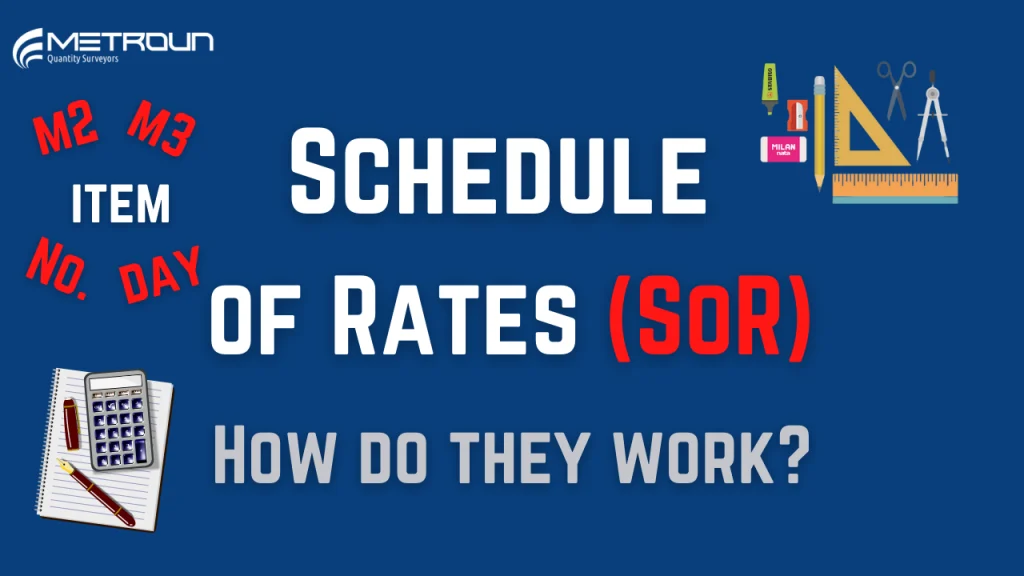Schedule of rates or (SoR) for short, is a list of rates used to value work requiring payment. The type of schedule of rates used may differ project to project. By the end of this article, you’ll be able to understand what Schedule of Rates are and when they are required.

In a recent article we spoke about Bills of Quantities in construction. These are used when firm or approximate quantities are understood when undertaking works. If the quantities are firm, then there may not be a need for a schedule of rates. The contractor knows what works needs to be undertaken and can price accordingly. However, what happens when the quantities are approximate? Or perhaps the quantities, aren’t known at all? You’ll likely be paid for the works against a schedule of rates.
The schedule of rates can be as simple as a list of labour, plant and materials with associated rates. However, sometimes schedule of rates are linked to the type of work being carried out. For example, let’s say you’re a fencing contractor who is employed to carry out works throughout a fixed period framework. In this instance, you may be working under an agreed schedule of rates with the client. This schedule, will list out the type of works, the unit of measurement and the associated rate. For example, you may have a rate for 1.2m high post and rail fencing. Payment will then be made upon measurement of work carried out. In this instance the linear meterage.
To avoid discrepancies between parties over what is covered under certain rates, the schedule is linked to either an agreed method of measurement or rate descriptors which detail exactly what work is covered under the different rates.
Some of the benefits to schedule of rates include:
· Ease of estimating variations
· More continuity when comparing returned tenders
· Tendering works before detailed design is carried out
Disadvantages to this approach include:
· Additional resource required to measure work
· Less cost assurance for the client
· Difficulty for contractors to plan resources long-term
Why not watch our video on this subject:






One Response
Does a schedule of rates apply to a fire door contractor performing work on an existing fire door to get it up to fire regs standard?